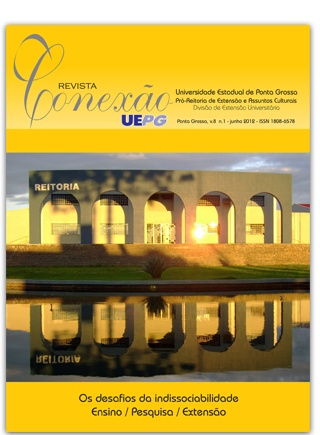DISTANCE LEARNING THROUGH EXTENSION: AN EXPERIENCE IN PEDAGOGICAL TRAINING FOR TEACHING IN HIGHER EDUCATION
Keywords:
Extension university, Teacher education, Distance learning, Autonomy, Evaluation.Abstract
This extension action aimed to analyze and evaluate the development of a continuing education course, for university and community teachers and for undergraduate students, as well as its impact on the participant discourse about autonomy and evaluation. It took place at the Goias State University through distance learning. It was carried out 16 hours in classroom and 64 hours through distance learning. The hours in classroom were divided at the beginning of the course (for presenting the training program, conference, group presentation and training for using the virtual environment Moodle) and at the end of it (for presenting poster, evaluation and focus groups). For data collection and evaluation it was conducted, concurrently, a qualitative research using the case study approach. Data were obtained through questionnaires, analysis of documents, focus group in the face-to-face meetings and bibliographical research. It aimed to define the profile of the participants, verifying the conception of autonomy and evaluation of the discourse of the ones that took part on the course, after and before of it, in order to check its repercussion. The theoretical background was based on Preti (2000), Freire (1996), Kant (1996) and Romao (1998). Regarding their conception about autonomy, it was possible to realize that they have some understanding about it in the teaching and learning process, but it is superficial and they do not give great importance to autonomy as teacher in higher education that are in charge of training autonomous professionals. With regard to evaluation, after analyzing the questionnaires, it was concluded that there was a qualitative change in the discourse of the ones that took part on the course. It was evident by their speech and writing that they expanded their vision about evaluation in relation to emancipatory theories.
Downloads
Downloads
Issue
Section
License
a) Authors retain copyright and grant the journal right of first publication with the work simultaneously licensed under a Creative Commons Attribution License that allows others to share the work with an acknowledgement of the work's authorship and initial publication in this journal.
b) By submitting an article to the Revista Conexão UEPG and having it approved, the authors agree to assign, without compensation, the following rights to the Journal: the rights of first publication and the rights to redistribute the article and its metadata to the indexing and reference services that the editors deem appropriate.
c) Readers are free to transfer, print out and use the articles published in the Journal, as long as there is always explicit mention to the author(s) and to the Revista Conexão UEPG and as long as there is no alteration of the original work. Any other use of the texts needs to be approved by the author(s) and by the Journal.






